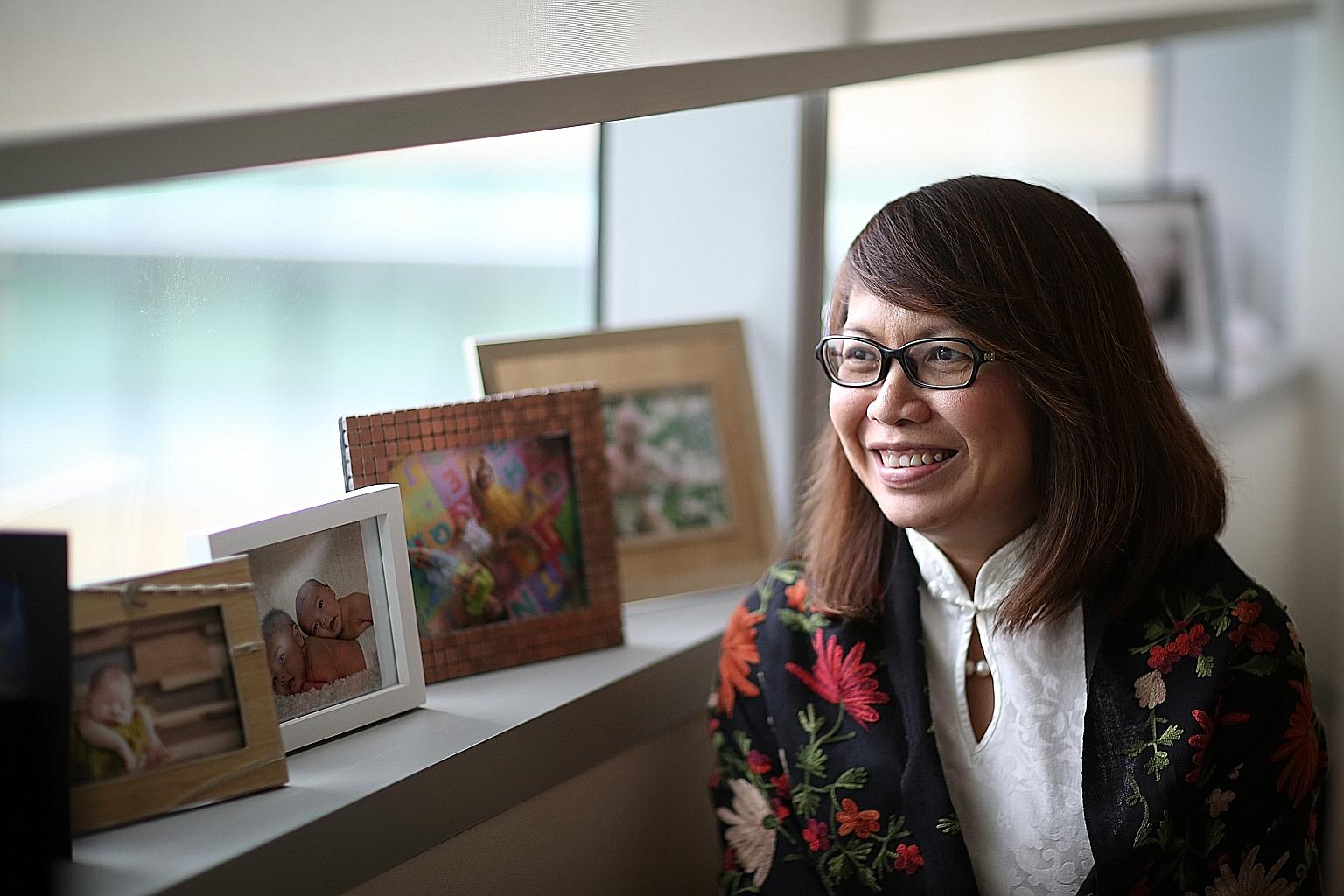People
She helps couples with recurrent miscarriages
Dr Sheila Vasoo recognised for pioneering pregnancy-loss programme at NUH
Sign up now: Get ST's newsletters delivered to your inbox

Dr Vasoo was also recognised for her work on the placenta and immune system in women with recurrent miscarriages. She hopes the sub-speciality of reproductive immunology will be raised among obstetricians and gynaecologists, so a younger generation of doctors can take an interest in the field.
ST PHOTO: ONG WEE JIN
Rheumatologist Sheila Vasoo sees profound grief in her job, working with couples who have had recurrent miscarriages, but she is driven by a strong sense of empathy and the joy of helping patients deliver a healthy baby.
The 46-year-old mother of three developed an autoimmune disease in her third pregnancy.
"I had a high-risk pregnancy and had to be on medication that I, as a rheumatologist, dish out to my patients," she said. "It really gave me a different empathy for (patients)."
A year or two later, one of her family members suffered a late miscarriage. When she conceived again, Dr Vasoo cared for her.
"That reinforced my desire to help this category of women," she said. Last month, she was among the winners of the Singapore Women's Weekly's annual Great Women Of Our Time Awards.
Dr Vasoo, a senior consultant and rheumatologist at the Mount Elizabeth Novena Specialist Centre, was recognised for pioneering the pregnancy-loss programme at the National University Hospital (NUH) with Professor Mahesh Choolani in 2009.
She was also recognised for her work on the placenta and immune system in women with recurrent miscarriages.
Disorders in the immune system, or when it doesn't function properly in pregnancy, contribute to at least half of the previously unexplained causes of miscarriage.
The clinic at NUH now sees an average of 100 to 150 cases a year and has a database of patients, which she hopes will deepen the understanding of repeated miscarriages here.
Dr Vasoo, who has three sons aged 10 to 16, handles patients from around the region as well.
Working with couples who have had at least two consecutive miscarriages, her journey with them can take from 12 months to three years.
Although one in five clinical pregnancies ends in a miscarriage, recurrent miscarriages are uncommon. One per cent of couples trying for a pregnancy have three or more losses while 5 per cent have two losses.
While much of her initial work was with women who could not remain pregnant, she has, in recent years, seen more women who cannot conceive and the focus has shifted to addressing that issue.
"I guess it's in tandem with all the current problems that Singapore faces with a rising maternal age and a lot of issues with fertility," she said. "That's where our passion is, to try and get the message out there for other colleagues to be aware that immunology is a big part of these causes."
A couple in their early 30s, who consulted her over two years, lost a foetus at 33 weeks and a second at five months, with the latter having a heart problem.
"We actually treated the baby in the womb to prevent the heart condition from recurring in a bad way," she said. "(The mother) had antibodies that crossed the placenta and attacked the baby's heart. We had to give her a treatment, steroids and immune modulators to treat the baby, (who) ran into trouble at about the fourth month of pregnancy."
The couple have since delivered a healthy child.
"She's an example of someone with a silent autoimmune disease that we picked up because of pregnancy issues," added the doctor, who trained as a rheumatologist and went for further training in pregnancy and rheumatic diseases.
A six-month stint at St Thomas' Hospital in London ignited her passion to start a recurrent-miscarriage clinic here, culminating in the one at NUH.
She hopes that, in Singapore, the sub-speciality of reproductive immunology will be raised among obstetricians and gynaecologists, so that a younger generation of doctors can take an interest in the field.
"There is so much to be done in terms of research... so that couples can have successful outcomes."
She added: "There has to be a lot of empathy and sensitivity during the whole consultation and, often, a listening ear goes a long way."
When there is profound grief and depression, it is also important to direct couples to counsellors or psychiatrists with suitable experience, as well as to support groups.
"We as doctors also grieve with them, give them time to heal, leave the door open for them to return when they are ready to talk about what went wrong, review our next steps together and start again," she said. "It's a special partnership that often becomes a deep bond forged through difficult times."


